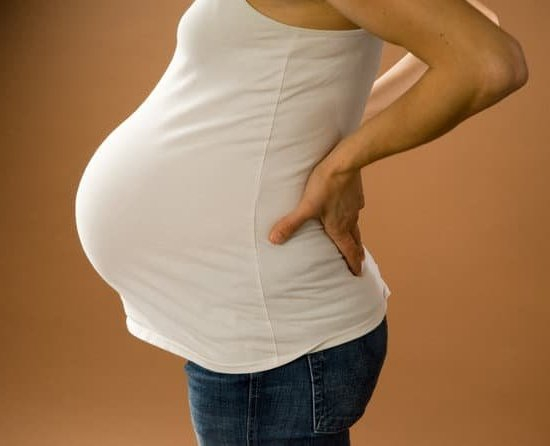Pregnancy is a time of great joy and anticipation, but it can also come with its share of discomforts, one of which is constipation. Many women experience constipation during pregnancy, and finding immediate relief from this condition is crucial for their overall well-being. In this article, we will explore the causes of constipation during pregnancy, the importance of immediate relief for pregnant women, and effective home remedies to alleviate this uncomfortable issue.
Constipation during pregnancy can be both frustrating and painful, leading to physical discomfort and emotional distress for expectant mothers. Understanding the reasons behind this common issue can help pregnant women better manage and find relief from constipation. Additionally, knowing how to address this problem with simple home remedies can empower pregnant women to take control of their own health and well-being.
In the following sections, we will delve into the causes of constipation during pregnancy and why immediate relief is essential for pregnant women. We will also provide a comprehensive list of home remedies that offer quick relief from constipation during pregnancy, as well as dietary changes, hydration tips, exercise suggestions, and natural supplements that can help alleviate this uncomfortable condition.
By equipping pregnant women with these relief options, they can effectively manage constipation and focus on enjoying a healthy and comfortable pregnancy journey.
Causes of Constipation During Pregnancy
During pregnancy, constipation can be a common and uncomfortable issue for many women. The causes of constipation during pregnancy can vary, but understanding these causes is crucial in finding effective relief.
Hormonal Changes
One of the primary causes of constipation during pregnancy is the hormonal changes that occur in the body. Increased levels of progesterone can lead to relaxation of the muscles in the digestive tract, resulting in slower digestion and, ultimately, constipation.
Pressure on the Intestines
As the uterus expands to accommodate the growing baby, it can put pressure on the intestines and rectum. This pressure can slow down bowel movements and contribute to constipation.
Dietary Factors
Dietary factors also play a significant role in causing constipation during pregnancy. A lack of fiber and fluids in one’s diet can lead to hard and dry stools, making them difficult to pass. Additionally, prenatal vitamins containing iron may contribute to constipation for some pregnant women.
Understanding these causes is essential in addressing constipation during pregnancy and finding immediate relief. By identifying the root issues, pregnant women can utilize targeted home remedies and lifestyle changes to alleviate their discomfort effectively.
Importance of Immediate Relief for Pregnant Women
Pregnancy can be a beautiful and transformative experience, but it also comes with its fair share of discomforts, including constipation. The importance of immediate relief for pregnant women cannot be overstated, as the discomfort and pain caused by constipation can significantly impact their overall well-being during this crucial time. Fortunately, there are several home remedies that can provide immediate constipation relief during pregnancy.
Effects of Constipation on Pregnant Women
Constipation during pregnancy can lead to various discomforts such as bloating, abdominal pain, and in severe cases, hemorrhoids. These symptoms can significantly affect a pregnant woman’s quality of life and may even contribute to increased stress and anxiety. Additionally, persistent constipation can lead to complications such as anal fissures or rectal bleeding. Therefore, it is vital for pregnant women to seek immediate relief from constipation to alleviate these discomforts.
Preventing Further Health Complications
Moreover, addressing constipation promptly is essential for preventing further health complications for both the mother and the baby. When a pregnant woman experiences regular bowel movements without straining or discomfort, it helps ensure that her body is functioning optimally. This optimal function supports the well-being of both the mother and her developing baby, making immediate relief from constipation even more crucial during pregnancy.
Enhancing Overall Pregnancy Experience
By providing immediate constipation relief through home remedies, pregnant women can enhance their overall experience of pregnancy. When they are free from the discomforts associated with constipation, they are better able to focus on other aspects of their prenatal care and enjoy this special time in their lives more fully.
It is empowering for pregnant women to have access to effective remedies that offer quick relief from constipation and allow them to prioritize their health and well-being throughout their pregnancies.
Home Remedies for Immediate Constipation Relief During Pregnancy
During pregnancy, constipation can be a common and uncomfortable issue for many women. It is important to find immediate relief options that are safe and effective for both the mother and the baby. Fortunately, there are several home remedies that can provide immediate constipation relief during pregnancy without the need for medication.
Here are some home remedies for immediate constipation relief during pregnancy:
- Increase fiber intake: Eating high-fiber foods such as fruits, vegetables, whole grains, and legumes can help soften the stool and promote regular bowel movements.
- Drink plenty of water: Staying hydrated is essential for preventing and relieving constipation. Aim to drink at least 8-10 glasses of water per day to keep the digestive system functioning properly.
- Stay active: Engaging in regular physical activity, such as walking or prenatal yoga, can help stimulate bowel movements and alleviate constipation.
In addition to these home remedies, pregnant women can also consider natural supplements such as probiotics or prenatal vitamins with added iron to promote healthy digestion and relieve constipation. It is important for pregnant women to consult with their healthcare provider before using any natural supplements to ensure they are safe during pregnancy.
Dietary Changes to Alleviate Constipation
During pregnancy, many women experience constipation due to the changes in hormone levels and the pressure exerted on the intestines by the growing uterus. This can be uncomfortable and potentially lead to other health issues if not addressed promptly. One of the key ways to alleviate constipation during pregnancy is through making dietary changes. Here are some helpful dietary tips to help ease constipation for pregnant women:
1. Increase Fiber Intake: Consuming foods rich in fiber can help soften your stool and promote regular bowel movements. Some high-fiber foods include fruits, vegetables, whole grains, and legumes.
2. Incorporate Prunes or Prune Juice: Prunes are known for their natural laxative effect and can be a great addition to your diet for easing constipation during pregnancy.
3. Avoid Constipating Foods: Certain foods can contribute to constipation, such as processed snacks, red meat, and dairy products. Limiting these items in your diet may help alleviate the issue.
By integrating these dietary changes into your daily routine, you can effectively manage and prevent constipation during pregnancy. The keyword “immediate constipation relief during pregnancy home remedies” can also support pregnant women in finding quick and natural solutions to this common discomfort they may face. It’s important to consult with your healthcare provider before making any significant changes to your diet while pregnant.
Hydration and Exercise Tips for Pregnant Women
During pregnancy, it is essential for women to prioritize their hydration and physical activity to alleviate constipation. Proper hydration can help soften stools and make them easier to pass, while regular exercise can promote healthy digestion and bowel movements. These simple lifestyle changes can provide immediate constipation relief during pregnancy without the need for medication.
To ensure adequate hydration, pregnant women should aim to drink at least 8-10 glasses of water or other hydrating fluids each day. It’s important to spread out fluid intake throughout the day rather than consuming large amounts at once. Hydration not only helps with constipation but also supports overall health and well-being during pregnancy.
In addition to staying properly hydrated, maintaining regular physical activity can also aid in preventing and relieving constipation during pregnancy. Moderate exercise such as walking, swimming, or prenatal yoga can help stimulate bowel movements and improve overall digestive function. Pregnant women should consult with their healthcare provider before starting any new exercise routine to ensure it is safe for their individual pregnancy.
By focusing on proper hydration and incorporating regular exercise into their daily routines, pregnant women can effectively manage constipation without relying on medications. These natural approaches provide immediate constipation relief during pregnancy and support the overall health of both the mother and the baby.
Natural Supplements for Constipation Relief
In addition to dietary changes, hydration, and exercise, natural supplements can also provide relief from constipation during pregnancy. However, it’s important for pregnant women to consult their healthcare provider before taking any supplements to ensure that they are safe for both mom and baby.
One natural supplement that is commonly used for constipation relief is fiber. Fiber supplements, such as psyllium husk or methylcellulose, can help soften the stool and make it easier to pass. It’s important to increase fiber intake gradually and drink plenty of water when using these supplements to avoid potential discomfort or bloating.
Another popular natural supplement for constipation relief during pregnancy is probiotics. Probiotics are beneficial bacteria that can help improve gut health and promote regular bowel movements. They can be found in certain foods, such as yogurt, or taken as a supplement in capsule form.
Finally, magnesium supplements may also be effective in relieving constipation during pregnancy. Magnesium helps relax the muscles in the intestines, which can aid in moving stool through the digestive tract more easily. However, it’s essential to consult with a healthcare provider before taking any magnesium supplements to determine the appropriate dosage.
Overall, natural supplements can be a valuable addition to a pregnant woman’s constipation relief regimen. When used responsibly and under the guidance of a healthcare provider, these supplements can provide safe and effective relief from constipation during pregnancy.
| Natural Supplement | Benefits |
|---|---|
| Fiber | Softens stool and makes it easier to pass |
| Probiotics | Improves gut health and promotes regular bowel movements |
| Magnesium | Relaxes intestinal muscles for easier passage of stool |
When to Seek Medical Attention for Constipation During Pregnancy
While home remedies and lifestyle changes can provide immediate relief for constipation during pregnancy, there are certain situations that warrant medical attention. If a pregnant woman experiences severe abdominal pain, blood in the stool, or has gone more than three days without a bowel movement despite trying home remedies, it is important to consult with a healthcare provider immediately. These could be signs of a more serious underlying issue that requires medical intervention.
Additionally, if a pregnant woman’s constipation is accompanied by symptoms such as nausea, vomiting, fever, or weight loss, it is crucial to seek medical attention promptly. These symptoms may indicate an infection or other health condition that needs to be addressed by a healthcare professional. It’s important for pregnant women to prioritize their health and well-being by reaching out for medical assistance when necessary.
In some cases, constipation during pregnancy may be a sign of a larger gastrointestinal issue that requires specialized treatment. A healthcare provider can conduct a thorough evaluation to determine the cause of the constipation and provide appropriate interventions to ensure the safety and comfort of both the mother and baby.
| When to Seek Medical Attention | Reasons |
|---|---|
| Severe abdominal pain or blood in stool | Possible indication of serious underlying issue |
| Nausea, vomiting, fever, or weight loss | Symptoms of infection or other health condition |
| No bowel movement for more than three days despite home remedies | Possible need for specialized treatment |
Conclusion
In conclusion, constipation during pregnancy can be a challenging and uncomfortable experience for many women. The causes of constipation during pregnancy are numerous, including hormonal changes, dietary factors, and physical changes in the body. The importance of immediate constipation relief for pregnant women cannot be overstated, as it can significantly impact their overall well-being and quality of life.
Fortunately, there are several home remedies that can provide immediate constipation relief during pregnancy. From dietary changes to natural supplements, pregnant women have a variety of options to choose from. Incorporating fiber-rich foods, staying hydrated, and engaging in regular exercise can also help alleviate constipation symptoms.
It is crucial for pregnant women to feel empowered with knowledge and resources to address constipation during pregnancy. By being proactive about their health and seeking out relief options, they can better manage this common discomfort. While home remedies can be effective for many women, it’s important to know when to seek medical attention for persistent or severe constipation symptoms.
Overall, providing pregnant women with relief options for constipation is essential in ensuring their comfort and well-being throughout this important time in their lives. By understanding the causes of constipation during pregnancy and implementing appropriate measures for immediate relief, expectant mothers can better focus on enjoying their pregnancy journey without unnecessary discomfort or stress.
Frequently Asked Questions
How Can I Stimulate My Bowel Movement Immediately During Pregnancy?
During pregnancy, it’s important to stimulate bowel movements in a gentle and natural way. Some methods that may help include staying hydrated, eating high-fiber foods, engaging in regular physical activity, and trying to establish a regular bathroom routine.
What Is a Natural Laxative for Pregnancy?
A natural laxative option for pregnant women is consuming prunes or prune juice. Prunes contain fiber and sorbitol, which can help soften stool and promote bowel movements. It’s always best to consult with a healthcare provider before using any natural remedies during pregnancy.
How to Relieve Constipation in 30 Minutes?
While it may be challenging to relieve constipation in just 30 minutes, there are some strategies that could potentially help. Drinking a warm beverage such as coffee or herbal tea, doing light exercise like walking, and massaging your abdomen can sometimes provide relief from constipation on a short-term basis.
However, if the issue persists, it’s important to seek medical advice for a more long-term solution.

Welcome to my fertility blog. This is a space where I will be sharing my experiences as I navigate through the world of fertility treatments, as well as provide information and resources about fertility and pregnancy.





